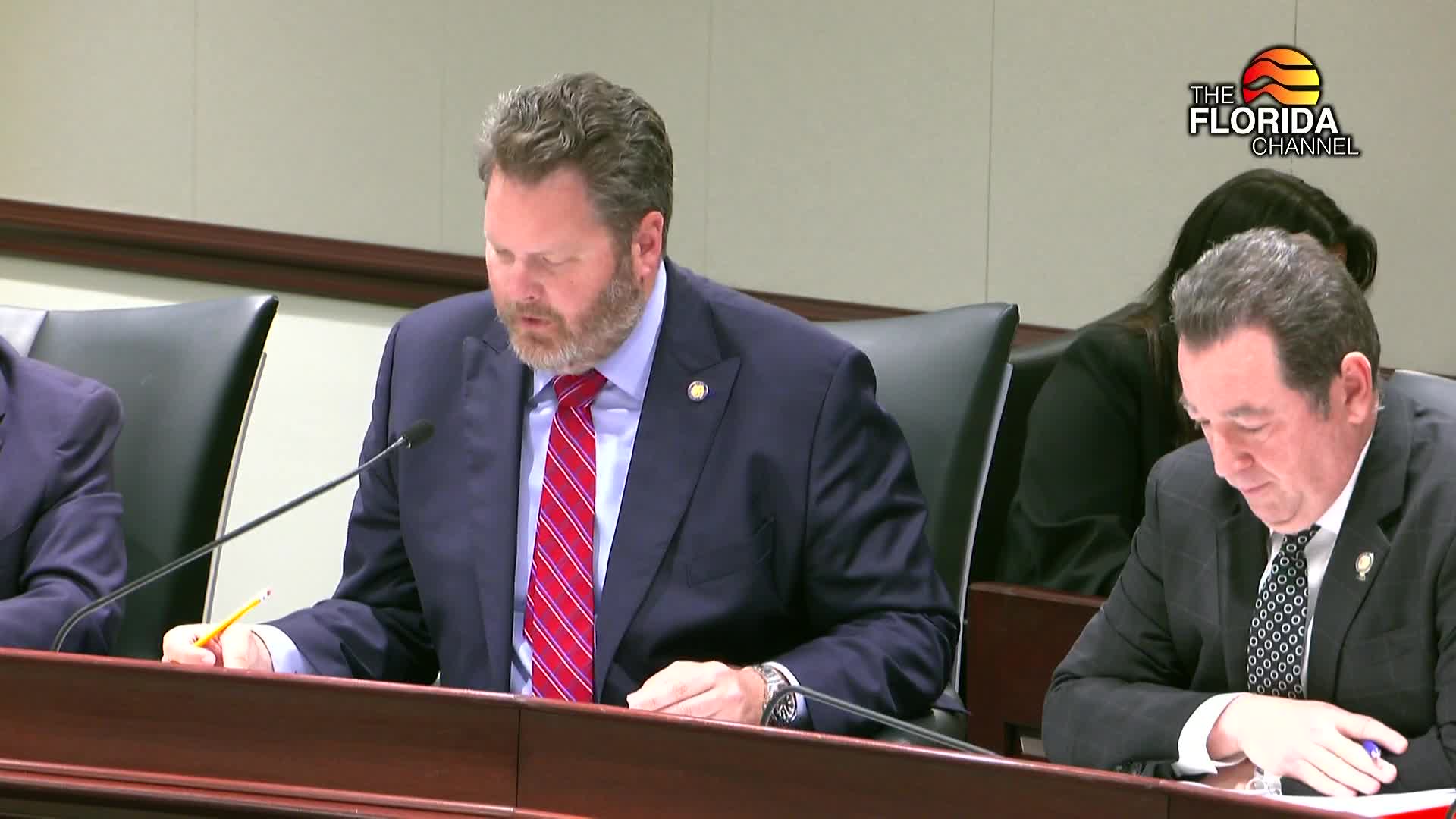Sponsor seeks overhaul of foreclosure and probate sale procedures; amendment adopted, bill temporarily postponed
Get AI-powered insights, summaries, and transcripts
Subscribe
Summary
Senator Garcia presented SB 48, a bill to tighten rules on foreclosure and probate sales, including extended notice periods, licensed auctioneer/escrow qualifications, and surplus-funds protections; the committee adopted a technical amendment and the sponsor temporarily postponed the bill for further work.
Senator Garcia presented SB 48 to the Appropriations Committee on Criminal and Civil Justice as a package of reforms intended to increase transparency and consumer protections for foreclosure and related probate sales. The committee adopted a technical amendment and the sponsor said she would temporarily postpone the bill to get it into proper posture.
Senator Garcia, sponsor, told the committee SB 48 would “enhance Florida's foreclosure sales procedures by making them more transparent, efficient, and fair.” She described several substantive changes in the bill: extending the timeline for public foreclosure sales from 20–35 days to 45–60 days after final judgment; strengthened notice requirements, including publication on a publicly accessible website or in a newspaper for two consecutive weeks; and a requirement that owners of homestead-qualified properties be told of their right to claim surplus funds without needing a lawyer.
The sponsor said the bill would permit courts to approve alternative sale methods when they “result in higher property values and maintain fairness,” add qualifications for independent auctioneers and escrow agents (licensed, insured and independent), and authorize county clerks to conduct online foreclosure auctions with public access, proxy bidding and electronic payments, provided surplus funds are distributed by the county clerk and claimants file timely claims.
Ray Contreras, a citizen who identified a long background in court-record scraping and title work, spoke in support and described an investigative reporting chain that found sales conducted “in a dark hallway” and other nonpublic venues. Contreras said the bill’s probate protections — including a requirement (he described from other proposals) to attach a certified appraisal to probate sales — were necessary to protect incapacitated owners and heirs. He testified that his review found some properties sold for as little as $5,000 and raised concerns about alternative sales being used to move assets to insiders.
Committee members pressed the sponsor on several points: Senator Osgood asked whether the Florida Bar could sanction judges who approved problematic sales; Garcia said there was no statutory prohibition in place for the behavior described and that the bill seeks to close statutory gaps. Senator Angolia questioned when courts began allowing alternative sales outside the clerk; Garcia said her office had traced the issue to investigative reporting (citing a Miami Herald report) and stakeholder conversations, and she said she had discussed the matter with the clerk of court and others but did not have a precise start date for the practice.
Senator Angolia and others expressed concern about the online-auction provision and the potential for large corporate actors to crowd out smaller bidders. Contreras and the sponsor said the intent is to make sales transparent and competitive; Garcia said she had worked with stakeholders and leadership and sought to ``disincentivize bad actors.''
On the amendment: Amendment 323,662 (sponsor language cleanup, grammar, standardization and clarifications) was explained by the sponsor as non-policy technical refinement; members adopted the amendment by voice vote. After extended Q&A and public comment, Senator Garcia said she would “TP the bill until we get it in proper posture,” indicating temporary postponement to address outstanding questions and edits.
No final committee roll-call vote on the bill as amended was recorded in the hearing transcript; the committee recorded the amendment’s adoption and the sponsor’s motion to postpone the bill pending further refinement.
